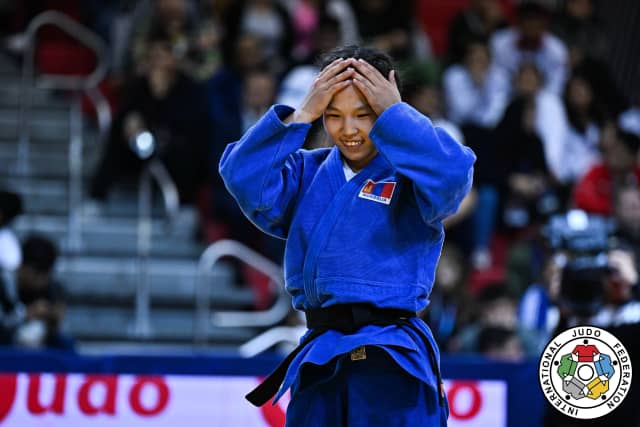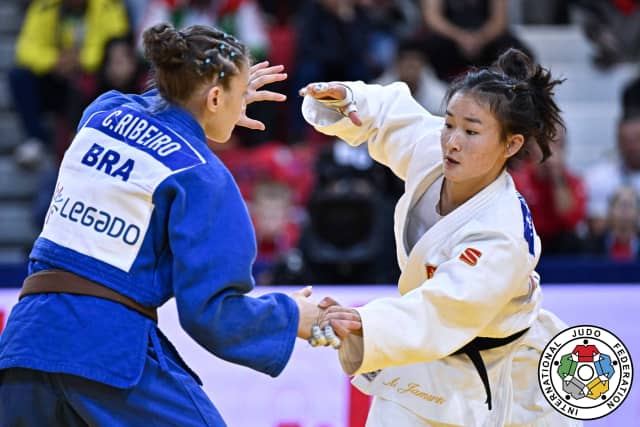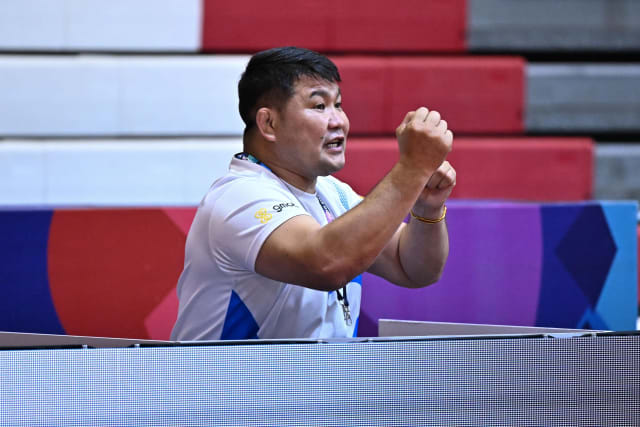“In the last 4 years a lot of new clubs have opened in Mongolia and in our national championships for cadets there were more than 2000 participants. It’s a huge number and so the competition is extremely intense. The judoka who won there came here to Peru."
"The national federation is now working very hard to help the club system and develop judo across the huge numbers of clubs that we have. Only the best can be here at the worlds but the rest also get support in different ways.
The cadets in Mongolia are very motivated and not all for the same reasons. For some, they see that there are money prizes at senior level. Even some really young judoka see that as a target, to be good enough to win prizes and so they are motivated to get better at the sport. Also, we have the Olympic Games only once every 4 years. Only best 14 fighters across all categories can say they are an Olympic champion. For Mongolian children, it’s good motivation to be among the best. It means something to them. I was the first world champion but overall Mongolia has only a handful of world champions or Olympic medallists and these cadets want to be next."
"We have an interesting anomaly in Mongolia that at cadet level there are many more girls than boys doing judo. This starts to become more balanced at the junior level but by the time they get to seniors we can say it’s changed to 70% men and 30% women. Support from the federation and government is the same for all and so we need to tackle the drop-off among women in the sport. Munkhbat, Bavuudorj and Dorjsuren continue to inspire the younger ones not to leave the sport and we hope this will help us to retain them in the future, especially with Bavuudorj being so closely linked to the current youngsters. All have to work hard at home and internationally though, regardless of numbers. A work ethic is key no matter what the rest of the context looks like.”
Why do you like to coach?
“I love judo! In my long career I have so many medals, from the worlds, Asian championships, Masters, WJT but I had a dream to become Olympic champion and I didn’t achieve it. My dream now is to support these young ones towards taking their chance, to help them become Olympic champion. My dream is to be with them as a coach, to do this amazing thing. This is why I care about these cadets so much. I believe in them.”
Motivation seems to be largely universal the world over. Whether a judoka comes from the Mongolian Steppes, inner-city Paris or the coastal towns of Brazil, the chance to improve towards the biggest medals is a motivator, it carries kudos and fuels the desire within our young judoka to be the best that they can be.




